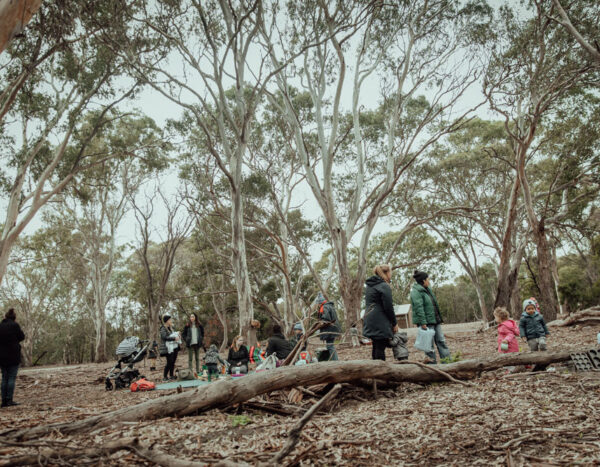New research aims to get educators and parents more on board with messy play

New research from Uni SA aims to support those parents and early childhood educators who are on board with ‘safe’ or ‘clean’ nature play but are more reluctant to let children engage in ‘messy’ activities or play that may be perceived as ‘risky’.
Many parents and educators are ok with children climbing trees, making mud pies, or simply playing outside because they know that being in nature is an important part of every childhood.
For messy or risky play, however, some can be more reluctant to allow children to engage, something which can limit children’s play opportunities, according to UniSA researcher and PhD candidate Kylie Dankiw.
During her interviews, Ms Dankiw learned that parents and educators have a solid understanding of the positive effects on children’s health, development, and wellbeing, and that nature play helps improve emotional regulation, physical skills, and learning outcomes, and can encourage children to develop their creativity and imagination.
“Parents and educators also identified that nature play can help children form a connection with the natural world and learn about sustainable practices,” she said. “Importantly, parents and carers felt that nature play experiences could be used to offset technology use such as TV and screens.
Despite knowing the benefits, parents and carers can find it difficult when it comes to engaging children in nature play, especially if activities are messy or dirty (such as water or mud play) or are thought of as being risky (such as climbing).
“Educators tell us that safety regulations and time restrictions can limit what they choose as outdoor activities, especially when they need to change children’s clothes after muddy play, or when parents expect their child to come home clean from childcare (sic)” Ms Dankiw said.
“There can be a conflict between encouraging children to experience nature, and what adults need to deal with in the so-called aftermath.”
Paediatric expert UniSA’s Dr Margarita Tsiros said that given the large number of children aged birth to 12 years of age who spend time in formal or informal early childhood education and care (ECEC) situations, further education and training for both early childhood educators and parents could help overcome some of the challenges that might be linked with nature play.
“Our research highlights that opportunities for young children to engage in nature play is influenced by other people in their lives,” Dr Tsiros says.
“While parents and educators recognise the benefits of nature play, they can struggle with certain aspects of being in nature, particularly risk. Understanding these barriers can help inform strategies to promote nature play for different age groups. It can also help inform policies and practices to promote enabling factors.”
Moving forward, Dr Tsiros said a key move will be to boost educators’ knowledge about nature-based learning, what constitutes nature play, and how they can use natural resources to facilitate nature play experiences.
“In a time where screens threaten to consume children’s interest, it’s vital that we present opportunities for them to engage in nature play, and to achieve this, we need to have parents and educators on board,” she added.
To read the findings in full, please see here.
Popular

Workforce
Policy
Quality
Practice
Provider
Research
ECEC must change now, our children can’t wait for another inquiry
2025-07-02 07:47:14
by Fiona Alston

Events News
Workforce
Marketplace
Practice
Quality
Provider
Research
An exclusive “Fireside Chat” with ECEC Champion Myra Geddes
2025-07-01 11:25:05
by Fiona Alston

Workforce
Practice
Provider
Quality
Research
Supporting successful transitions: Big moves, big feelings
2025-06-26 11:00:30
by Fiona Alston











